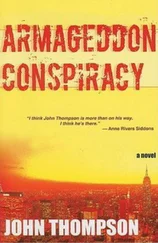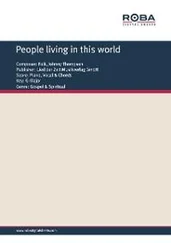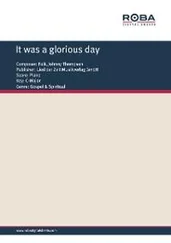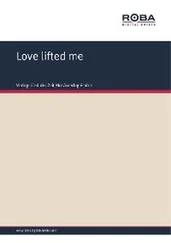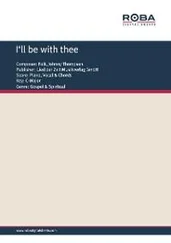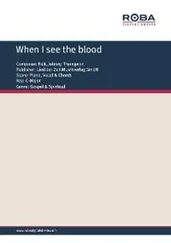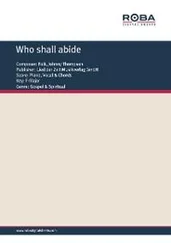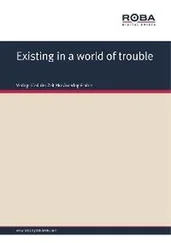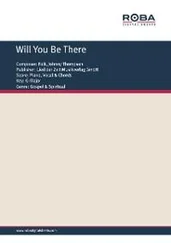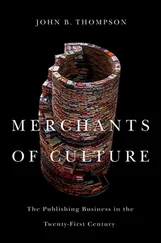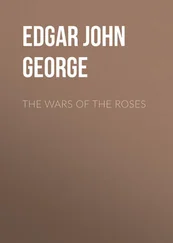18 18 Ibid.
19 19 Wischenbart et al., Global eBook 2017, p. 100.
20 20 Rüdiger Wischenbart, together with Carlo Carrenho, Dayou Chen, Javier Celaya, Yanhong Kong, Miha Kovac and Vinutha Mallya, Global eBook 2016: A Report on Market Trends and Developments, pp. 107, 110, at www.global-ebook.com.
21 21 Rüdiger Wischenbart, together with Carlo Carrenho, Javier Celaya, Miha Kovac and Vinutha Mallya, Global eBook 2015: A Report on Market Trends and Developments, p. 118, at www.global-ebook.com.
 Chapter 2
Chapter 2  RE-INVENTING THE BOOK
RE-INVENTING THE BOOK
In the previous chapter, I argued that ebooks are best seen as another format rather than a new form of the book, but I put to one side the more radical possibility that the digital revolution might enable us to re-invent what ‘the book’ is. The ebook is commonly understood as a book that is delivered to the reader as a digital file rather than as a physical object, and read on a screen rather than by turning the physical pages of a print-on-paper book. An ebook in this sense is derivative from, and limited by, the physical properties of the print-on-paper book, for the ebook is based on the same content and the same core file as the printed book and is simply converted to the file requirements of the relevant ebook vendors and reading devices – the ebook, in this sense, is a replica of the printed text, what Angus Phillips calls the ‘vanilla ebook’. 1The ebook as replica is not necessarily identical to the printed text in every respect. Some details may differ – the cover, pagination and typography, for example, as well as other paratextual features such as the style and positioning of dedications, epigraphs, illustrations, chapter headings and notes. While some of these variations may be significant to literary and bibliographical scholars, they don’t alter the fact that the ebook as replica remains tied to the textual content of the printed book. But books constructed, delivered and read in an electronic form do not have to be derivative from the physical properties and textual content of the print-on-paper book. They can be created in different ways and endowed with different sets of properties. There are lots of ways that this could be done – some already tried, some yet to be invented. One straightforward way of creating a new kind of book is to develop an ebook as a linear text but in digital form only – digital sui generis – and to experiment with the properties of the text. For example, you could experiment with the properties by keeping the text very short, perhaps as short as 10,000 words, and sell it as an ebook at a low price – a type of ebook that has been dubbed ‘the digital short’ or ‘e-single’.
Another way of creating a new kind of book would be to start with an existing book, fiction or nonfiction, and enrich the ebook version by adding multimedia features of various kinds, like audio clips, video clips, pop-up graphics and animation – in the business, these are commonly referred to as ‘enhanced ebooks’. With the widespread adoption of iPads and colour tablets such as the Kindle Fire, Nook Tablet and Google Nexus, which can play multimedia features, enhanced ebooks seemed to many publishers like a promising avenue to pursue, and indeed a good deal of experimentation of this kind took place from 2011 on.
A third way of re-inventing the book would be more radical. It would start with a clean slate and ask: how do we create a book that uses the full range of functions and possibilities afforded by the digital medium and the existing range of operating systems and reading devices? It wouldn’t start with an existing print book and seek to enhance it for the digital reading experience; rather, it would start with the digital reading experience and seek to create a book for it. Here the book would begin life not as a text envisaged for the medium of print, but as something quite different – e.g., as an app, a text that is part of a reading and user experience that exists only in the digital medium and only on screen, and that has no direct print-on-paper equivalent.
Between the two extremes of ebook-as-replica and book-as-app, there are numerous variations and permutations: we have, in practice, a whole spectrum of possibilities here, ranging from the ebook as a straight reproduction of the printed text at one end to the fully re-invented book at the other end, with digital shorts, enhanced ebooks and other experimental forms occupying the intermediate ground, as illustrated in figure 2.1.

Figure 2.1Some experimental forms of the book
In this chapter, I want to explore some of these new experimental forms of the book – not the vanilla ebook but the strawberry ebook, the lemon-sorbet ebook, the cherry-and-dark-chocolate ebook. I’ll look at some of the initiatives that have been undertaken by mainstream publishers – and mainstream publishers have been much more proactive about experimenting with new forms than many people outside the industry might think. But I also want to look at some of the many start-ups that were launched with the aim of trying to create a new kind of book that would be tailored to, and would take advantage of, the distinctive features and affordances of the digital medium. In some respects, the new start-ups were less constrained than mainstream publishers, simply because they had no investment in traditional print technology and were therefore free to experiment with a clean slate; but, unlike mainstream publishers, the start-ups had no print business to fall back on if the new venture didn’t pan out, and therefore their financial position was more precarious. In exploring these experimental forms, I will of course attend to the distinctive features of the forms themselves, but I don’t want to restrict our attention to the properties of these forms as if this were a purely textual exercise, nor do I want to speculate abstractly on what might be possible on the basis of technological affordances: decontextualized analyses of this kind are common but they are of limited value for understanding what has actually happened in this domain, and what is likely to happen in the foreseeable future. My approach is different: I go inside the organizations that are (or were) seeking to develop these innovative new forms of the book, talk to the individuals involved in developing them, find out what they were trying to achieve, why they were trying to do it, how they were trying to do it, whether they succeeded and, if not, why not. Only in this way will we understand whether the book really is being re-invented in the digital age, whether the form of the book is being redesigned for the digital medium rather than retaining the form it has in the medium of print, and whether any new form that might be invented in the digital age has any chance of surviving beyond a brief experimental phase. It is one thing to have great ideas and to dream up new literary forms that could be created using new digital technologies; it is quite another to come up with a viable product that embodies this form, establish a stable organizational structure to produce it and find a revenue stream of sufficient magnitude to enable this form to become a sustainable cultural output. Great ideas are one thing; making them work in practice is quite another.
The life and times of the digital short
Tom is a digital publisher at ‘Mansion House’, a large trade publisher in the UK. He joined the company in 2011, having worked previously at a small avant-garde independent where he pioneered their digital strategy and earned a reputation in the industry as an innovator and cutting-edge thinker about the digital future. Brought in as the digital publisher at a much larger house, Tom was now responsible for thinking creatively about new digital initiatives in order to keep Mansion House at the forefront of new developments. One of the first things he did was to commission a series of short books, 10,000 words each, that would be published as ebooks only – ‘long-form journalism, which I saw as an opportunity area’, explained Tom. These were nonfiction books, mostly dealing with current affairs, that could be published very quickly and priced cheaply – £2.99 at the time, or under $5. They did moderately well – most sold a couple of thousand copies; one, by a well-known author, sold over 5,000. Tom then began to expand the series by finding stuff in the archives of Mansion House, mostly by well-known authors, that could be repackaged as digital shorts, paying a small refresher advance and putting it out as an ebook. Some of these did even better – one sold over 10,000 copies. For nonfiction digital shorts, that was the range in Tom’s experience: a couple of thousand copies at the lower end, 10,000 copies at the upper end. It was viable, provided the advances and refreshers were low, but overall sales were limited and revenues were modest, especially given the low prices.
Читать дальше
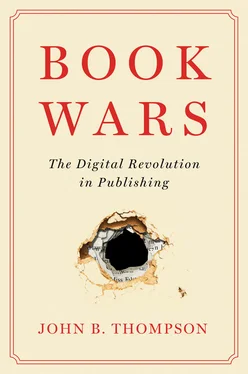
 Chapter 2
Chapter 2 
